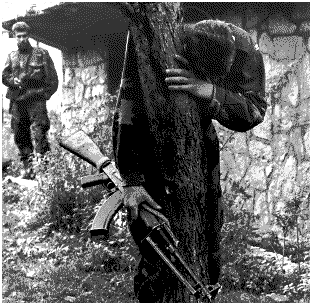The Brain of Pooh
Writing as Therapy

Subject: people affected by the war
Could you possibly tell me who was affected by the war and how they were affected? I'm having a hard time finding information about regular people all I get is the famous people. Thank you so very much.
If you want to study the effects of WWI, you might look at In Flanders Fields or "Loos" or The First World War by Gerard J. De Groot.
In truth, World War One was a loser as far as wars go. It only killed 16,000,000 ordinary people --- 21,000,000 wounded: mostly conscripts at the Western Front and poor civilians to the east.
WWII, on the other hand, was considerably more cost-efficient. More than 60,000,000 people died, 30,000,000 alone in "The Great Patriotic War" (Russia vs. Nazi Germany) ... with countless millions more dying at the hands of the Japanese in their "Greater Eastern CoProsperity Sphere." China lost between 10,000,000 and 20,000,000 (civilians and military); Poland lost over 16% of its total population.
One of the best books about the death of "regular people" is Music of Another World by Szymon Laks. For American soldiers --- humble grunt soldiers --- see The Naked and the Dead by Norman Mailer.
For suffering under the Japanese, read the second review, Judgment at Tokyo: The Japanese War Crimes Trials by Tim Maga. For the plight of the people of Russia see Without Vodka: Adventures in Wartime Russia by Aleksander Topolski. For a view of the sufferings of the people of Italy, see A Woman of Rome by Alberto Moravia, and for a general study of life in England during the war, you might want to consult the very funny Between Silk and Cyanide: A Codemaker's War 1941 - 1945.
